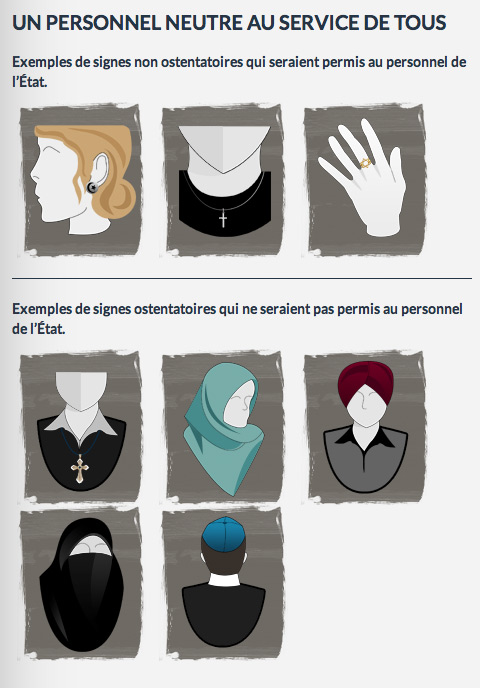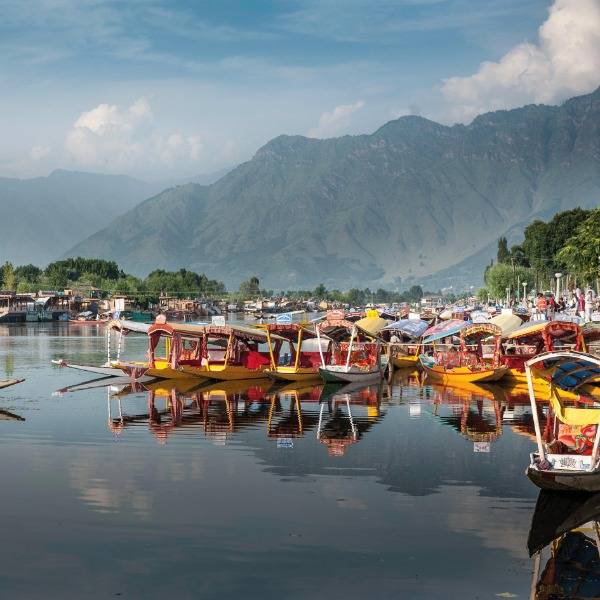
Who would have though that the most divisive issue to hit Quebec since the 2012 students' strike that brought down the Liberal government would be a proposal to impose a strictly secular dress code, cut and pasted from the French rulebook?
The governing Parti Quebecois (PQ), which advocates national sovereignty for Quebec, has decided to provoke a crisis – and, perhaps, snap elections that would turn its minority administration into a majority – with its plans for a "Charter of Quebec Values".
The charter proposes to ban public employees from wearing ostentatious religious symbols – headscarves, turbans, kippahs, large crosses – in the workplace, which in Quebec includes not only government bureaucrats, judges, and police officers, but doctors, nurses, professors, teachers, and even daycare workers.
What some praise as an advance that enshrines secularism into the law of the land, others are denouncing as ethnic nationalism that unfairly restricts minority groups' freedom of choice.
The debate has dominated media and divided the public in recent weeks. Yet ironically, it has long been a bone of contention that public services don’t hire visible minorities in a way that represents the the diversity of Canada. The government has managed to flip this around to make it about restricting religion in the workplace.
Minority communities, many of whose members come to Canada overqualified for the job market, already end up struggling for work. The charter would force these to choose between employment prospects and religious practice, the dress code of which cannot simply be opted out of, like for Catholics and Protestants.
Quebec politicians have a long history of playing on the French-speaking population's inferiority complex by blaming immigrants for diluting the province's francophone character. People who came of age during the Quiet revolution of the 1960s, when the shackles of the church were quickly severed and replaced by demands for access to higher education and political agency, still hold a deep antipathy to religious rule.
Unfortunately, these hardline secularists haven’t insisted the Charter removes the giant crucifix from the national assembly, changes the streets and towns named after Catholic “Saints”, removes the cross from the Province’s flag or deposes the giant illuminated cross that dominates Montreal’s skyline on top of the Mount Royal. No, in the quest for religious neutrality, some signs are more equal than others.
The media and politicians have in recent years played up instances of immigrant communities’ unreasonable demands for accommodation by the state.
This debate has emboldened the least tolerant toward physical and verbal attacks on women who wear the Hijab. A rural mosque was doused in pigs blood back in August.
Recent polls show the public is more divided than previously thought, with an older generation pitted against the young, and the progressive urban Quebecois pitted against more traditional folks in the provinces. In a matter of three weeks since the issue blew open, public opinion polls of French speakers have gone from showing 65 % support for the charter to 49 %.
In a remarkable show of solidarity, Montreal city officials and mayors unanimously expressed a desire to opt-out of the Charter. Some even talk about the logistics of Montreal becoming a city state separate from Quebec. University professors who are self-proclaimed atheists have taken to wearing religious symbols in class to protest.
What looked like a PR trick to try and win a majority government by provoking a snap election (because the PQ know they'll be extremely unpopular when their budget comes out next year) now seems to have backfired. Quebec’s intellectual class and civil society is split.
Quebec nationalism has always been animated by a deep self-critique of democracy. The seven month-long student strike was an important period in which many citizens were forced to rethink their relationship to the state – and it’s highly significant that its political intellectual class, which includes some of the former student leaders, has been profoundly opposed to this charter.

